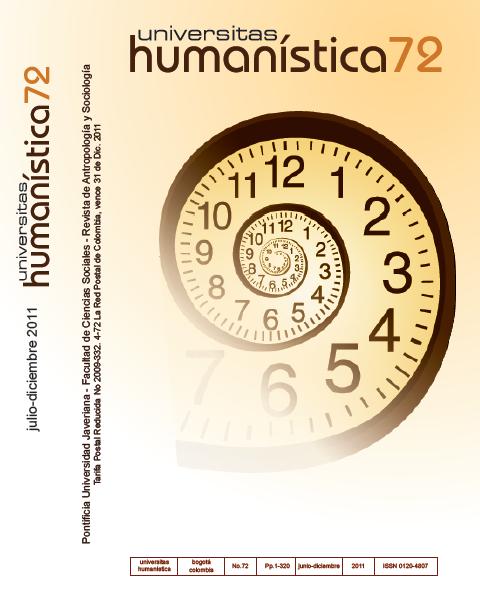Abstract
Through an ethnographic analysis of Central Cemetery in the city of Neiva (Huila), this text proposes to exemplify how cemeteries are privileged settings for the embodiment, organization and resignification of the manifold memories Neivan society collectively build and imagine in order to represent themselves in a dispute for identities and remembrance. They mirror what they are, have been, and aim at being. Those memories may be traced through the battle of signs, the persistence of hegemonies, the nation’s narrative, the bipartisan imprint, tenacity and the horror of the armed conflict, popular claims, the desire for a miracle, the vindication of affection, resistance, regional identity, the ephemeral, the transcendent and oblivion
This journal provides immediate open access to its content on the principle that making research freely available to the public, encourages greater global exchange of knowledge.
The journal Universitas Humanística is registered under a Creative Commons Attribution 4.0 International Public License. Thus, this work may be reproduced, distributed, and publicly shared in digital format, as long as the names of the authors and Pontificia Universidad Javeriana are acknowledged. Others are allowed to quote, adapt, transform, auto-archive, republish, and create based on this material, for any purpose (even commercial ones), provided the authorship is duly acknowledged, a link to the original work is provided, and it is specified if changes have been made. Pontificia Universidad Javeriana does not hold the rights of published works and the authors are solely responsible for the contents of their works; they keep the moral, intellectual, privacy, and publicity rights.
Approving the intervention of the work (review, copy-editing, translation, layout) and the following outreach, are granted through an use license and not through an assignment of rights. This means the journal and Pontificia Universidad Javeriana cannot be held responsible for any ethical malpractice by the authors. As a consequence of the protection granted by the use license, the journal is not required to publish recantations or modify information already published, unless the errata stems from the editorial management process. Publishing contents in this journal does not generate royalties for contributors.


